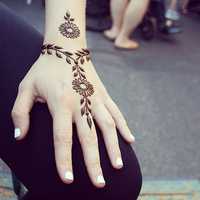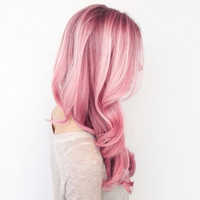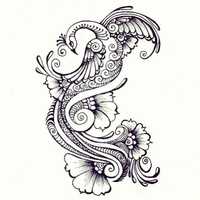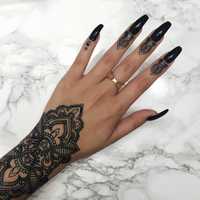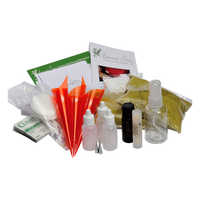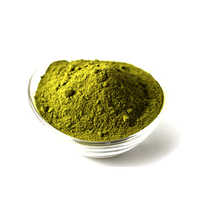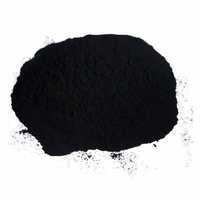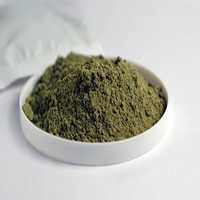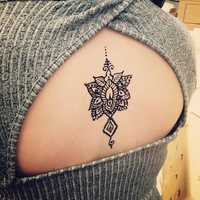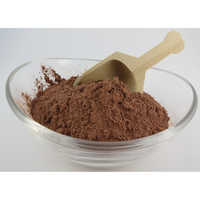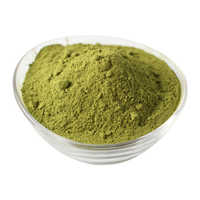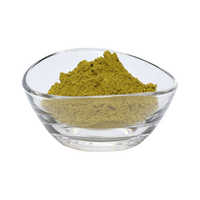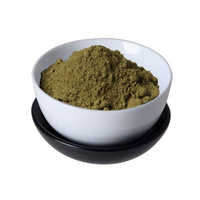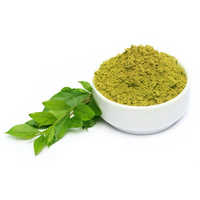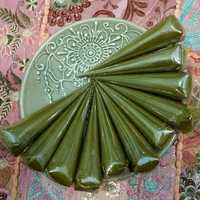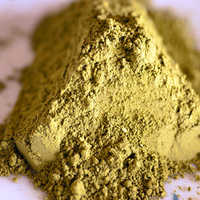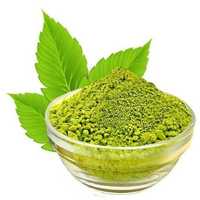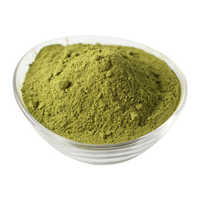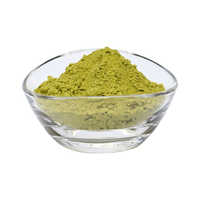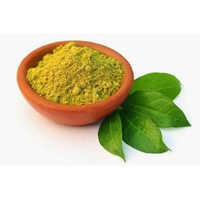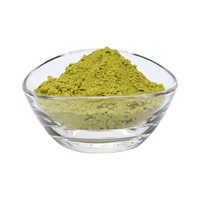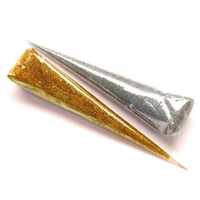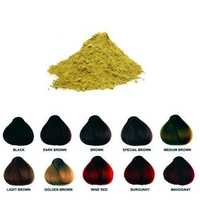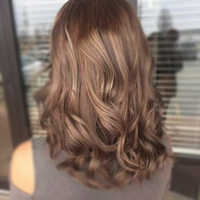Henna & Henna Products
(1339 products)
Related Categories
Adult Diapers
Anti Infective Drugs & Medicines
Ayurvedic & Herbal Powder
Ayurvedic Medicines & Products
Baby & Infant Products
Bath Products
Beauty Equipment
Beauty Products
Bio-technology Products
Brain & Nervous System Drugs
Breast Care Products
Cancer, TB & Tumor Drugs
Cardiovascular Drugs
Common Medicines & Drugs
Contact Lenses
Contraceptives & Condoms
Cosmetic Accessories
Cosmetics
Cotton Buds
Dietary Supplements
Disinfection Equipment
ECG Paper
EMU Oil Products
Empty Capsules
Essential Oils & Aromatics
Eye & Ear Drops
Hair Care Products
Health Care Equipment
Health Food
Healthcare & Hygiene Products
Henna & Henna Products
Herbal & Botanical Products
Herbal Medicine
Homeopathic Medicines
Immunization & Vaccination Drugs
Massager
Nail Care Products
Natural Herbs
PCD Pharma
Pain Relief Drugs & Medicines
Pediatric Medicines
Perfumes & Fragrances
Personal Care Products
Personal Safety Equipment
Pharmaceutical Ointments & Creams
Plant & Animal Oil
Plant Extract
Salon & Spa Equipment
Shaving Razor & Products
Skin Care Products
Soap & Hand Wash
Toothpaste & Tooth Brush
Veterinary Medicine
Weight Loss Products
Top Henna & Henna ProductsCategories
Explore More Categories
Organic Indigo Powder
Price: 220 INR (Approx.)/, Kilograms
MOQ - 100 , Kilograms/Kilograms
9 Years
Business Type: Manufacturer | Distributor
APEX INTERNATIONAL
Verified Exporter
( Accepts only Foreign Inquiry)
No Side Effects Golecha Maroon Henna Cone
MOQ - 1 Box/Boxes
Shelf Life - 18 Months
Storage Instructions - Dry Place
Feature - 100% Natural & Herbal, Easy To Use, Free From Harmful Chemicals, No Side Effects
4 Years
Business Type: Manufacturer | Distributor
GOLECHA NATURALS PVT LTD
Red Natural Heena Cone
MOQ - 1 Carton/Cartons
Color - RED
Properties - Henna Applicators
Category - Mehendi Cone
5 Years
Business Type: Manufacturer | Exporter
GAURANG INTERNATIONAL
Excel'S Nihar Natural Henna Powder Efficacy: 100% Organic Free From Chemical
Price: 20.00 - 250.00 INR (Approx.)/Piece
MOQ - 30 Piece/Pieces
Efficacy - 100% organic Free from Chemical
Properties - Henna Applicators
Category - Natural Henna
16 Years
Business Type: Manufacturer | Distributor
EXCELL IMPEX (GUJARAT) PVT. LTD.
Mahogany Henna
Price: 50.00 - 500.00 INR (Approx.)/Piece
MOQ - 200 Piece/Pieces
Product Type - Coloring Products
Type - Herbal Products
16 Years
Business Type: Manufacturer | Exporter
IZUK IMPEX
100% Natural Henna Powder Direction: Green
Properties - Powdered Henna
Category - Natural Henna
Feature - Restore Shine, Easy To Use, Covers Grey, Long Lasting Color, No Side Effects
Business Type: Manufacturer | Supplier
SALIUS PHARMA PVT. LTD.
Verified Exporter
( Accepts only Foreign Inquiry)
Dark Mahogany Henna Hair Color Direction: External Use Only
Price: 300 INR (Approx.)/Kilograms
MOQ - 100 Kilograms/Kilograms
Category - Henna Hair Color
Feature - Restore Shine, Easy To Use, Free From Harmful Chemicals, Long Lasting Color, No Side Effects
Usage - Hair
9 Years
Response Rate: 86.36%
Business Type: Manufacturer
D. K. INDUSTRIES
Prem Dulhan Mehendi Cone
Price: 3000 INR (Approx.)/Carton
MOQ - 1 Carton/Cartons
2 Years
Business Type: Manufacturer | Exporter
Prem Green Pvt. Ltd.
Free From Harmful Chemicals Shampoo
Price: 62 INR (Approx.)/Piece
MOQ - 500 Piece/Pieces
Feature - Free From Harmful Chemicals, No Side Effects, Easy To Use
Material/Ingredients - Other
Form - Other
6 Years
Response Rate: 75.61%
Business Type: Manufacturer
PINE HERBALS
Henna Oil
Price: 500 INR (Approx.)/Kilograms
MOQ - 10 Kilograms/Kilograms
14 Years
Business Type: Manufacturer | Distributor
DIVISHA NATURAL FLAVOURS AND FRAGRANCES EXPORTS
Henna Powder
Price: 300 INR (Approx.)/Pack
MOQ - 5 Pack/Packs
5 Years
Business Type: Manufacturer | Distributor
Sanjivan Anusandhan Pvt. Ltd.
Indian Inquiries Only
Brown Burgundy Herbal Mehndi Third Party Manufacturing
MOQ - 50 Unit/Units
Color - Brown
Properties - Powdered Henna
Category - Natural Henna
Business Type: Manufacturer | Service Provider
EVERYDAY HERBAL BEAUTY CARE
Packed With All Needed Minerals For Healthy Hair Indian Organic Pure A Grade Green Indigo Powder Shelf Life: 12 To 24 Months
MOQ - 30 Kilograms/Kilograms
Color - Green
Category - Natural Henna
Feature - Covers Grey, Conditioned Hair, Free From Harmful Chemicals, 100% Natural & Herbal, Easy To Use, Restore Shine, Long Lasting Color, No Side Effects
2 Years
Business Type: Manufacturer | Trading Company
RANCHANDI HERBAL PRODUCTS
Green 3 Filter Henna Powder
MOQ - 10 Kilograms/Kilograms
Color - Green
Properties - Powdered Henna
Category - Natural Henna
2 Years
Business Type: Manufacturer | Supplier
AYSHA N HERBALS PRIVATE LIMITED
Green Herbal Mehndi Powder
Efficacy - Good
Color - Green
Properties - Powdered Henna
2 Years
Business Type: Supplier | Trading Company
ACHARYA & DAUGHTERS
100% Natural & Herbal Pure Organic Henna Leave Powder
Price: 200 INR (Approx.)/Kilograms
MOQ - 100 Kilograms/Kilograms
Properties - Powdered Henna
Category - Natural Henna
Feature - 100% Natural & Herbal
3 Years
Business Type: Manufacturer | Supplier
Royal Herbal Products
Conditioned Hair Herbal Henna
Price: 050 USD ($) (Approx.)/Piece
MOQ - 500 Piece/Pieces
Feature - Conditioned Hair
Usage - Both
Material/Ingredients - 100% Henna
7 Years
Response Rate: 72.13%
Business Type: Manufacturer | Distributor
ITNCS TRADERS(OPC) PVT. LTD.
Natural Henna Powder Shelf Life: 2 Years
Price: 80 INR (Approx.)/Kilograms
MOQ - 10 Kilograms/Kilograms
Properties - Powdered Henna
Category - Natural Henna
Form - Powder
1 Years
Business Type: Manufacturer | Exporter
NUVONATURALS PRIVATE LIMITED
Indian Inquiries Only
Shahraan Burgundy Henna
Price: 15.00 - 20.00 INR (Approx.)/Kilograms
MOQ - 100 Kilograms/Kilograms
6 Years
Business Type: Manufacturer | Distributor
GANGA MEHANDI UDHYOG
Green Natural Indigo Henna Powder
Price: 80 INR (Approx.)/Piece
MOQ - 10 Piece/Pieces
Color - Green
Properties - Powdered Henna
Category - Natural Henna
2 Years
Business Type: Manufacturer | Exporter
SHREE OVERSEAS EXPORTS
Henna & Henna Products Manufacturers | Suppliers in India
| Company Name | Location | Member Since |
|---|---|---|
| Green Earth Products Pvt Ltd. | New Delhi, India | 22 Years |
| Excell Impex (Gujarat) Pvt. Ltd. | Sanand, India | 16 Years |
| Izuk Impex | New Delhi, India | 16 Years |
| Divisha Natural Flavours And Fragrances Exports | Delhi, India | 14 Years |
| M. M. Ayurvedic (P) Ltd. | Kolkata, India | 11 Years |
| Apex International | Jaipur, India | 9 Years |
| D. K. Industries | Ghaziabad, India | 9 Years |
| James Wild Herbs | Delhi, India | 8 Years |
| Itncs Traders(Opc) Pvt. Ltd. | Moga, India | 7 Years |
| Pine Herbals | Ambala, India | 6 Years |
Henna: Trends and Innovations
Henna, also referred to as Mehndi in the Hindi language, is not merely a beauty item; it is a form of art that has been ruling the world for centuries. Originally, it is known to have emerged from Egypt and then further spread throughout the world as an effective ancient-period medicinal plant. This in turn made it profusely utilized in a plethora of creative and innovative ways. It has a pristine cultural approach and is applied for centuries on the hand palms specifically on festive occasions, for instance, marriage functions and Raksha Bandhan. It has become an indispensable part of Indian artistic and customary practices. In the modern scenario, it has become a representation of good health and prosperity. It is often innovatively added to various henna products, such as hair dyes, colors, and momentary hand tattoos which can have permanent nostalgic moments. There are plentiful advantageous properties associated with henna plant products. Today, with the rising trend of such beauty and cosmetic products, the demand for henna is getting steadily higher. There are several brands offering powdered mehndi products.
Benefits of Using Henna and Henna Products
Henna has been used since ancient times as temporary tattoo designs and hair dyes. There are prominently different benefits related to using this natural plant-based product. It is often accepted as a cosmetic product used for hair dyes and self-hair care. It is an amazing traditional medicine that possesses purgative properties. With its regular application in hair, dandruff and scalp infections can be relieved to a great extent. Whether it is a hair fall issue or greying hair stress, henna, which is rich in vitamin E, can prove to be a wonderful remedy.
Properties and Uses of Henna and Henna Products
There are different properties associated with henna products. Henna is a cool plant-based product that is available in different forms. It has always been used as a traditional medicine, owing to its effectiveness in relieving the pain of open wounds in the form of a coagulant. It can soothe the inflammation of the joints. It provides a cooling and relaxing effect to the affected area and, thus, can be used to cure small burns. The henna leaves and powder comprising antibacterial, antifungal, and antiseptic properties for treating stressed minds. Undoubtedly, applying henna paste to the mind can snatch away negativity and provide a calmness to the mind.
Henna Products for Weddings and Special Occasions
Henna is an amazing way to connect with the pristine tradition and honor Indian customs. Henna is a symbol of auspiciousness and good fortune. Indian weddings often call for a mehndi ceremony celebration where the brides are beautifully adorned with decorative paisleys and peacock designs on their hands and legs in the form of temporary tattoos. New creative designs have been innovated. Today, mehndi designers are making bride and bridegroom figures on the palms of the bride. With modernization in Indian wedding ceremonies, people add a new trend of dancing and playing music. Social media trends are highlighting the need for choreographed dance steps for adding spice to the celebration of mehndi occasions in an auspicious manner. Overall, henna brings a sense of togetherness among family members before a lovely couple ties the knot.
Top Brands of Henna Products in India
Let us put the torch at the top-rated brands of henna and henna products in India:
- Apex International is a Jaipur-based brand that offers organic indigo powder with no artificial additives.
- Green Earth Products Pvt Ltd is a trustworthy Delhi-based company significantly with 21 years of experience in the herb henna powder market.
- Excell Impex (Gujarat) Pvt Ltd is located in Sanand of Gujarat. Since 1994, the brand has been engaged in offering natural henna powder, which is significantly free from synthetic chemicals and thus loved by people, who prefer original and organic ingredients.
- Organofarm Foods And Herbals is an Amravati, Maharashtra based company that supplies pure henna powder along with other products.
- Mahadev Corporation is a Pali, Rajasthan based company has in its offering herval products, including henna.
FAQs: Henna & Henna Products
Q. Are henna and mehndi the same?
Ans. In India, there is always persistent doubt among people regarding the difference between henna and mehndi. Henna is an organic product that is cool and provides an orange or a reddish shade of color wherever applied to the body. It is popularly known as mehndi by the Indian population. It is popularly admired by women who love intricate and detailed designs on their hands and feet for beautifying purposes at special events. But commonly, these terms can be used for their actual substitutes.
Q. What are the henna products for hair?
Ans. Henna is an illustrative way of self-expression. Several hair products are trending in the market that are made using original henna. The hair colors made using henna as a raw material impart a beautiful orangish shade to the hair, which lasts longer. Also, it can provide an irresistible luster and shine to the hair, making them look adorable. There are antifungal and antibacterial properties found in the mehndi, which ultimately boost hair growth and reduce bacterial growth on hair scalps, which could be destructive after a limit. One of the major benefits of using henna hair products is their originality. They are sourced from native henna plants and are completely free of harmful chemicals. It makes it a safe option for people with sensitive skin and allergies to artificial hair colors. It has been scientifically proven that consistent usage of henna can lead to flawless hair texture and an incredible color shade. Also, it results in providing nourishment to hair strands.
Q. What are the types of henna products?
Ans. With unique and admirable properties, different types of henna products are put to use for commercial applications, such as additions to beauty cosmetic products. Henna powder is among the most common products that are used for creating body art. More frequently, it is used for hair dyeing purposes. It is prepared by collecting and crushing henna leaves. Henna cones are products that contain henna paste to form intricate designs and drawings on the skin for temporary beautification. Henna hair dyes made with natural plant-based ingredients are specifically made to replace the damage-causing chemical hair dyes. Henna oil is typically extracted from henna leaves. It has significant usage for skin care. It is further employed in aromatherapy applications.
Q. What is the average price of henna in the Indian market?
Ans. The cost of henna can vary depending on several factors. The aspects that directly influence the price of mehndi can be quality, brand, or amount. A small packet of henna powder will cost less in comparison to a larger one. With an approximation, the price can be between 50 and 500 Indian rupees. Consumers can pay between 10 and 50 rupees for a single henna cone for applying on hands and feet for occasions like Raksha Bandhan, and wedding festivities. The price also fluctuates based on the location of the stores and the presence of specialized mehndi types requirements of the mehndi cones.
Related Categories
Related Categories
Adult Diapers
Anti Infective Drugs & Medicines
Ayurvedic & Herbal Powder
Ayurvedic Medicines & Products
Baby & Infant Products
Bath Products
Beauty Equipment
Beauty Products
Bio-technology Products
Brain & Nervous System Drugs
Breast Care Products
Cancer, TB & Tumor Drugs
Cardiovascular Drugs
Common Medicines & Drugs
Contact Lenses
Contraceptives & Condoms
Cosmetic Accessories
Cosmetics
Cotton Buds
Dietary Supplements
Disinfection Equipment
ECG Paper
EMU Oil Products
Empty Capsules
Essential Oils & Aromatics
Eye & Ear Drops
Hair Care Products
Health Care Equipment
Health Food
Healthcare & Hygiene Products
Henna & Henna Products
Herbal & Botanical Products
Herbal Medicine
Homeopathic Medicines
Immunization & Vaccination Drugs
Massager
Nail Care Products
Natural Herbs
PCD Pharma
Pain Relief Drugs & Medicines
Pediatric Medicines
Perfumes & Fragrances
Personal Care Products
Personal Safety Equipment
Pharmaceutical Ointments & Creams
Plant & Animal Oil
Plant Extract
Salon & Spa Equipment
Shaving Razor & Products
Skin Care Products
Soap & Hand Wash
Toothpaste & Tooth Brush
Veterinary Medicine
Weight Loss Products
